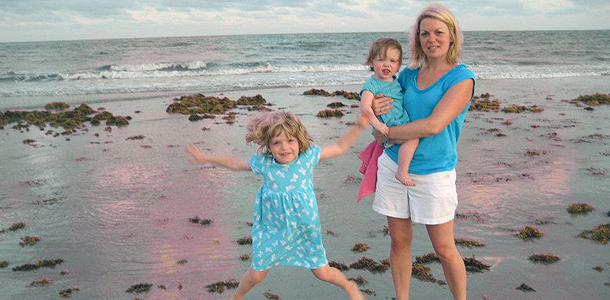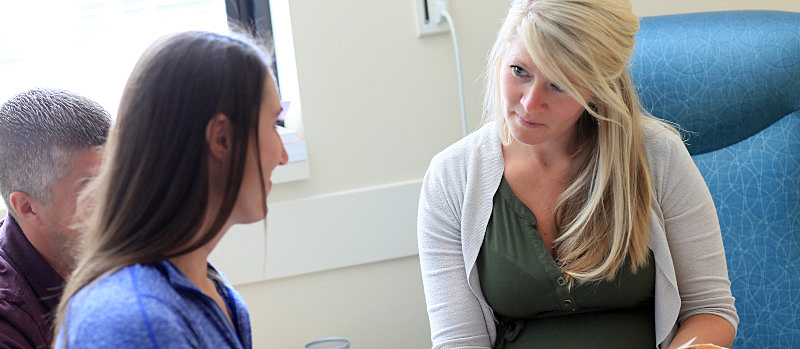Despite doing everything “right,” in my pregnancies, I delivered both of my girls prematurely. I avoided unhealthy environmental factors. I went to prenatal appointments. I took my vitamins. Ate a well-balanced diet. So why was my first daughter born almost three months too early, and my second six weeks too early? The unfortunate reality is that we just don’t know. And disturbingly, too many women are in my same position.
The numbers are alarming. One in nine babies in the United States is born prematurely. There is no clear cause in nearly 50 percent of them. Things need to change for future mothers and babies. I’m hoping a newly formed research collaborative will do just that.
Cincinnati Children’s has joined three other Ohio hospitals and three major Ohio universities to form the March of Dimes Prematurity Research Center Ohio Collaborative. It’s a group that is being funded by $10 million from the March of Dimes and aims to solve the mystery of premature birth. The idea is to pull together researchers and doctors to find answers and hopefully prevent preterm birth from happening. And for such a large number of institutions to come together in a collaborative way reiterates just how big of a problem prematurity is and how little is truly known.
We do know that environment, lifestyle, and lack of prenatal care can all contribute to it. But that still leaves a big question mark for the mothers that can’t tie their premature births to one of those known factors.
That’s where genetics could possibly play a role. Dr. Louis Muglia, the lead researcher in the collaborative and co-director of the Perinatal Institute, is hoping that the multi-institutional information sharing can give a better perspective on the genetic influences of prematurity. He and his colleagues are going to look at attracting a wide-range of participants, including not only the mother and father, but the grandparents, too.
My whole family is signed up to participate in Dr. Muglia’s fetal research study, one of many that will contribute knowledge to the collaborative. I’m hoping that our DNA can contribute to a discovery that will put an end to premature births. Far too many families go through this. In fact, the rate of preterm birth is higher in the U.S. than any other industrialized country and remains nearly 30 percent higher than it was in the early 1980s.
This collaboration means hope to me. Hope that not even one more mother will have to leave the hospital without her newborn. I feel fortunate that both of my girls are growing and are healthy but it was stressful getting there. I am hopeful that this collaborative can foster discoveries to determine why prematurity happens and possibly prevent it from happening in the first place.






Your girls look adorable, great post 🙂
http://www.vindiebaby.com
Vintage Inspired Girls